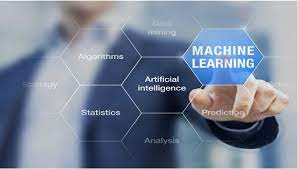In today’s world, energy management has become an increasingly important issue as we strive towards more sustainable and efficient practices. With the help of Artificial Intelligence (AI), energy management is becoming more sophisticated and effective, delivering a range of benefits for both individuals and organizations.
What is AI-Powered Energy Management?
AI-powered energy management is the use of machine learning algorithms to optimize the use of energy in buildings and facilities. This technology utilizes data from various sources, including building management systems, sensors, and weather data, to identify energy consumption patterns and make predictions about future usage. This allows the system to adjust energy usage in real-time, ensuring that energy is used efficiently and sustainably.
Benefits of AI-Powered Energy Management
Improved Energy Efficiency
One of the primary benefits of AI-powered energy management is improved energy efficiency. By analyzing energy consumption patterns, AI systems can identify areas where energy is being wasted and optimize energy usage accordingly. This not only reduces energy costs but also helps to reduce carbon emissions and supports sustainability efforts.

Cost Savings
AI-powered energy management systems can also deliver significant cost savings for organizations. By optimizing energy usage and reducing waste, organizations can reduce their energy bills and improve their bottom line. This can free up resources for other areas of the business and support long-term growth.
Predictive Maintenance
AI-powered energy management systems can also support predictive maintenance, which involves identifying potential issues before they become a problem. This is achieved by analyzing data from building management systems and sensors to identify patterns that may indicate an impending issue. By identifying these issues early, organizations can take proactive steps to prevent downtime and costly repairs.
Enhanced Comfort and Productivity
AI-powered energy management systems can also enhance the comfort and productivity of building occupants. By analyzing data on temperature, humidity, and air quality, these systems can adjust environmental conditions to ensure optimal comfort for occupants. This can help to reduce absenteeism and improve productivity, delivering benefits for both employees and organizations.
Integration with Smart Building Systems
AI-powered energy management systems can also integrate with smart building systems, delivering a range of benefits. For example, these systems can be used to optimize lighting, HVAC, and other building systems, ensuring that they are used efficiently and sustainably. This can deliver cost savings, reduce carbon emissions, and support sustainability efforts.
Real-Time Monitoring and Control
AI-powered energy management systems can also provide real-time monitoring and control of energy usage. This means that organizations can monitor energy consumption in real-time, identify issues as they arise, and take proactive steps to address them. This can help to reduce waste, improve energy efficiency, and support sustainability efforts.
Support for Renewable Energy
AI-powered energy management systems can also support the use of renewable energy sources, such as solar and wind power. By analyzing data on energy usage and production, these systems can optimize the use of renewable energy sources, ensuring that they are used efficiently and sustainably. This can help to reduce carbon emissions and support sustainability efforts.
As the benefits of AI-powered energy management become more widely recognized, we can expect to see increased adoption of these systems across a range of industries. From commercial buildings to industrial facilities, these systems have the potential to deliver significant value for organizations of all sizes.
However, it is important to note that AI-powered energy management systems are not a one-size-fits-all solution. The effectiveness of these systems will depend on a range of factors, including the specific needs of the organization, the type of building or facility, and the available data sources. As such, it is important for organizations to work with experienced providers to identify the right solution for their needs.
There are also potential challenges associated with the adoption of AI-powered energy management systems. For example, these systems may require significant investment in hardware and software, as well as training for staff. In addition, there may be concerns around data privacy and security, particularly as these systems become more integrated with other smart building systems.
Despite these challenges, the benefits of AI-powered energy management systems are clear. As we continue to focus on sustainability and energy efficiency, these systems have the potential to play a critical role in helping organizations to reduce their environmental impact, save costs, and improve the comfort and productivity of building occupants.

Conclusion
AI-powered energy management systems offer a range of benefits for organizations and individuals. By optimizing energy usage, reducing waste, and supporting sustainability efforts, these systems can deliver significant cost savings, enhance comfort and productivity, and support long-term growth. As the world continues to focus on sustainability and energy efficiency, AI-powered energy management systems are becoming an increasingly important tool for organizations looking to optimize their energy usage and reduce their environmental impact.
the benefits of AI-powered energy management are clear. From improved energy efficiency to cost savings and enhanced comfort and productivity, these systems have the potential to deliver significant value for organizations and individuals alike. As the world continues to focus on sustainability and energy efficiency, we can expect to see increased adoption of these systems across a range of industries. However, it is important for organizations to work with experienced providers to identify the right solution for their needs and to carefully consider the potential challenges associated with adoption. With the right approach, AI-powered energy management systems can deliver significant benefits for organizations and individuals alike, supporting a more sustainable and efficient future.
Moreover, AI-powered energy management systems are not only beneficial for organizations but also for the environment. The reduction of energy waste and efficient use of renewable energy sources can help reduce carbon emissions and support the global efforts towards a sustainable future. As the world continues to face the impacts of climate change, it is crucial for organizations to prioritize sustainable practices and reduce their environmental impact. The adoption of AI-powered energy management systems can be a crucial step towards achieving these goals.
Moreover, AI-powered energy management systems are not only beneficial for organizations but also for the environment. The reduction of energy waste and efficient use of renewable energy sources can help reduce carbon emissions and support the global efforts towards a sustainable future. As the world continues to face the impacts of climate change, it is crucial for organizations to prioritize sustainable practices and reduce their environmental impact. The adoption of AI-powered energy management systems can be a crucial step towards achieving these goals.
AI-powered energy management systems offer a range of benefits for organizations, individuals, and the environment. From improved energy efficiency to cost savings and enhanced comfort and productivity, these systems can deliver significant value for all stakeholders. As the world continues to focus on sustainability and energy efficiency, the adoption of AI-powered energy management systems is becoming increasingly important. By prioritizing these technologies, organizations and individuals can support a more sustainable and efficient future, helping to reduce their environmental impact and support long-term growth.
















